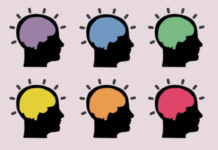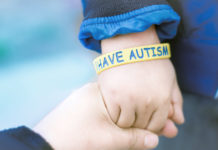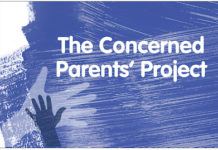Your Pharmacist is Tattling On You!
A CVS pharmacy recently sent me a standardized form by fax with a dire warning about one of my patients. The form was called “MEDICATION NONADHERENCE THERAPY ADVISORY” and it said: “A review of your patient’s retail and mail prescription history indicates that the patient has not obtained his or her first refill.”
Book Review: The Other Mrs. Smith by Bonnie Burstow
In The Other Mrs. Smith, Dr. Burstow chose to use the fiction format, presumably because she felt it was the best way for readers to understand what it is like to experience electroshock and deal with the aftermath of massive memory loss. In this she succeeds spectacularly.
Debunking The Latest Gene Study
The researchers suggest that their finding implies a common genetic cause behind five different “disorders.” This is big news! If true, it validates the biomedical view of mental “illness” and suggests that future medical treatments could “cure” these conditions. However, that grand conclusion is not supported by the data.
Letter to The New York Times: Many People Taking Antidepressants Discover They Can’t Quit
Ten years ago, the recent New York Times article entitled “Many People Taking Antidepressants Discover They Can’t Quit” would have shocked me. I would have dismissed serious medication withdrawal as rare. But I tell my patients something different today.
“How Did This Happen?” – Being Injured By Pharmaceuticals Once Again
How did it happen to me? It happened because none of us have enough resources for the sort of brain injury and impairment the psychopharmaceutical drugs impart upon us. No one knows what is really being done to our brains and some of us are clearly more sensitive than others.
Neurodiversity is Dead. Now What?
The neurodiversity movement is a public relations campaign that emphasizes the positive qualities associated with some presentations of autism—creativity, increased tolerance for repetition, enhanced empathy, and exceptional memory—while erasing or minimizing the experiences of autistics who are severely disabled.
The Scientism of Autism
Autism is now simply assumed to represent a real, tangible, identifiable ‘thing.’ But no one is asking the obvious question: On what evidential basis can you conclude that autism represents a natural category that can be differentiated from other natural categories? According to the real science, autism should be seen as a fact of culture, not a fact of nature.
Apply Yourself, Your Whole Self, and Nothing But Yourself
Now, personality tests are being used to determine which side of the wealth gap people will fall on. Who you are is not neutral — the lens your personality-test results will be viewed through is: “are you a good worker?” Any definition of this will likely exclude psychiatric survivors, those labeled by the DSM and those who see, think, hear, speak and feel differently.
Leon J. Kamin (1927-2017): A Nemesis of Genetic Determinism and Scientific Racism
Leon Kamin should be remembered for his role as an intellectual nemesis of the purveyors of the false ideologies of scientific racism and genetic determinism. The Science and Politics of I.Q., Not in Our Genes, and Kamin’s other writings remain works of major importance.
“How Long a Time”: Ten Cold Hard Truths For Ending Psychiatric Abuse
Here are the Ten Cold Hard Truths we must ALL confront in our organizing efforts. If we fail to understand and grasp these truths we will ALL be susceptible to “burnout” and/or a slide into dead-end reformist type strategies that will only derail our efforts to reach the day when we can truly end all forms of psychiatric abuse.
How the Human Stress Response Explains Away “Bipolar Disorder”
Here we'll take a look at so-called 'mania.' We'll go through the criteria for a 'manic episode' symptom by symptom so you can see how the stress response is potentially operating. There's practically nothing that happens in human minds and bodies that the stress response doesn't potentially affect.
The Concerned Parents’ Project: 31 Questions
The Concerned Parents’ Project grew out of the idea that there may be parents out there who are confused and bewildered by the mixed messages on what it is to have normal and healthy childhood experiences. We posted a new question and answer for parents each day in March.
10 Things I Learned in 5 Years Consulting With People Coming Off Psych Drugs
It's been over 5 years since I started offering non-medical consultations to people in the process of coming off or hoping to come off psych drugs. I wanted to share here some things I have learned in this process. Despite how far we have come, we have a long way to go in the quest to liberate all who wish to be liberated from psychiatry.
National Institute of Mental Health Violates Law on Posting Clinical Trial Results
Last year, over twenty major institutions worldwide jointly committed to posting the results of all their clinical trials within a 12 month time frame. NIMH’s frequent failure to do so is especially concerning because evidence distortion appears to be remarkably widespread in journal articles discussing trials of psychiatric drugs.
Institutionalization: An Unacknowledged Cause of Psychiatric Outpatients’ Deterioration
Psychiatry didn’t really stop institutionalizing people; it just found new ways to do it. Institutionalization, rather than drug toxicity, best explains patients’ downhill course and their
worsening after coming off meds, as they have lost the skills needed to cope with life’s challenges due to disuse.
A Tale of Two Studies
With increasing evidence that psychiatric drugs do more harm than good over the long term, the field of psychiatry often seems focused on sifting through the mounds of research data it has collected, eager to at last sit up and cry, here’s a shiny speck of gold! Our drugs do work! One recently published study on withdrawal of antipsychotics tells of long-term benefits. A second tells of long-term harm. Which one is convincing?
Psychiatry and a Near Mass Shooting at Cornell
Nearly all perpetrators of mass violence have had some contact with psychiatry or related mental health services. The idea of giving more power and money to psychiatry to prevent violence is a great political talking point but it is disastrous for public health and safety. Psychiatry seems averse to recognizing violent patients but eager to give them violence-inducing drugs.
The Antidepressant Wars in the Post-Truth Era
We have at least some solid, incontrovertible evidence available to all that the claims about antidepressants in the press do not directly match the text of the source article in the Lancet. Nowhere in the original article did the authors make the extreme or even controversial claims appearing in the mainstream media.
Changing Mental Health, One Published Case Report At A Time
Lifestyle interventions are the only corrective measures that are sufficiently complex to resolve the stress response factors that drive pathology. This case draws from twenty years of published scientific literature on psychoneuroimmunology and the connection between the gut, immune system, endocrine system, and the brain.
Antidepressant Anarchy in the UK
In this blog, I want to give some personal reflections on the events of the last few weeks in relation to the Lancet antidepressant meta-analysis and the lodging of a formal complaint with the UK Royal College of Psychiatrists. The issue of antidepressant withdrawal has been brought into the public eye in the UK like never before. What happens next will be very interesting.
How Would We Know If We Overthrew the Mental Health System?
What would it take to go about abolishing psychiatry? If we truly eliminated all the horrid practices that are currently committed by the mental health system, what would the world look like? What follows are 15 ways our society would need to change before we could be confident that we are free from the tyranny of the mental health system.
So What is Mental Disorder? Part 2: The Social Problem
The English Workhouse was designed to deter people from seeking state assistance, and Victorian asylums were designed to care for poor people whose behaviour was disruptive to Workhouse routines. Madness, previously viewed as an interesting, if inconvenient, manifestation of humanity, came to be seen as a social problem in need of correction.
Stop the Shocks: Torture in Massachusetts
For 7 hours, Andre McCollins was strapped to a 4-point restraint board and shocked 31 times while he screamed and begged and apologized. What happened to him is still legal. It wouldn’t be legal for anyone else — not convicted terrorists, not captured enemy combatants, not anybody. And it shouldn’t be: torture should not be legal. But it happens every day to disabled people.
Creating “Mental Illness” – An Interview with Christopher Lane
The story behind how the ICD and the DSM came to include certain mental disorder descriptions is a fascinating one. Christopher Lane, a 2005 Guggenheim Fellow, wrote about these seminal events in Shyness: How Normal Behavior Became a Sickness. We discuss what led him to write this book a decade ago, and why the questions he posed are still relevant today.
Rewarding the Companies That Cheated the Most in Antidepressant Trials
When I first saw this Lancet 2018 network meta-analysis of antidepressant trials, my thought was that the authors had rewarded those companies that had cheated the most with their trials. My suspicion was strengthened when I looked at the results in their abstract and the three drugs they claimed were more effective and better tolerated.

































